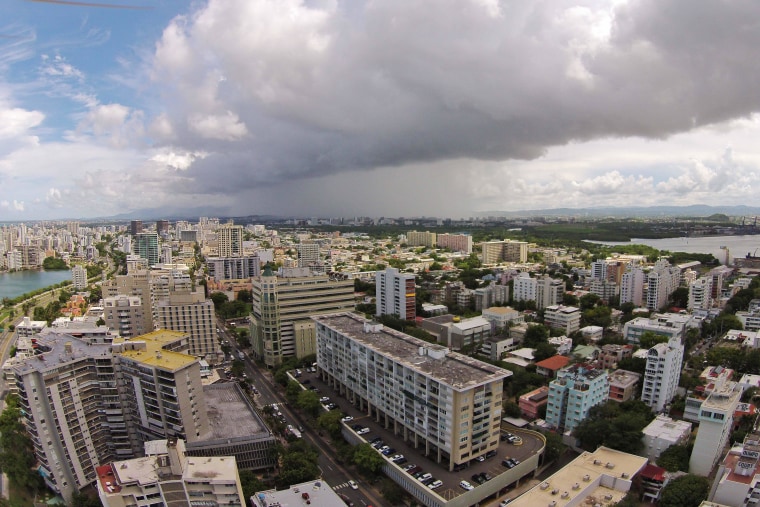As Puerto Rico, a U.S. territory, grapples with a severe crisis, we are publishing opinion pieces reflecting different views on the situation; these are the writers' personal views.
SAN JUAN, Puerto Rico — Congress is feeling the heat on Puerto Rico, but something is not always better than nothing.
Republican members of Congress are feeling the pressure stemming from several sides: Bondholders who seek a financial control board that maximizes the highest possible debt payments, the upcoming Supreme Court decision about the legitimacy of a state bankruptcy law and the arrival of more than 660,000 Puerto Rican migrants in the last nine years to key electoral states such as Florida and New York. (These are now new members of the Democrat’s Party).

But there are even more pressures affecting the best interests of the US government. For one, almost half of the islanders leaving for the mainland are poor, creating a demand for more public services. A massive default from Puerto Rican bonds can create a financial contagion in the U.S. municipal bond market. Moreover, U.S. exports — especially agricultural products — to Puerto Rico will be reduced even further if the Great Depression of Puerto Rico deepens. Don't forget it's 2016, and mainland Puerto Ricans and Latinos can make the situation a thorny political issue in the political campaign.
RELATED: As Clock Ticks on Debt Payment, Puerto Rico Braces for What's Next
The U.S. government has a shared responsibility on the Puerto Rican crisis that has to be addressed. The U.S. destroyed the Puerto Rican economy by removing tax incentives for manufacturing without providing or allowing enough time for a new economic plan —a fact some of us can verify using advanced statistics.
They banned access to both federal and local bankruptcy laws that would allow the restructuring of 70 percent of the debt that was issued by government-owned corporations and municipalities (whose bonds are not subject to constitutional priorities), and since the early 20th century they limited Puerto Rican export competitiveness by imposing navigation acts (Jones Act) that force the island to pay the most expensive vessels in the world, among others.
Instead of buying the debt and providing a few years before repayment — this could be easily done by the Federal Reserve or by the Department of Treasury, as done with corporations even when the well-being of millions of people was not in jeopardy — the executive branch has wisely decided to pass the responsibility to the Congress, which lets the executive branch have someone to blame.
RELATED: Voices: While History Is Made in Cuba, What About Puerto Rico?
The U.S. could have provided tools to restore economic development. It could have applied the Earned Income Tax Credit, removed navigation acts, formalized incentives to U.S. firms located in Puerto Rico and provided parity in Medicaid and Medicare. Instead, Congressional Republicans introduced a bill insisting on imposing a Fiscal Control Board that will exacerbate both economic downturn and poverty (by reducing aggregate demand and public services with austerity programs) and will ultimately lead to a even higher migration with the aforementioned consequences.
Under these circumstances, the best strategy for Puerto Rico and its allies is to block any bill that includes a fiscal control board (even if they call it “oversight board”), to declare a moratorium on debt payments in Puerto Rico, and to audit the whole debt (to uncover illegal debt issued over constitutional limits and under fraud). These actions will put higher pressure on both Washington and bondholders. Hedge funds can sue but any case in the court would take years to be resolved. This would actually help the Puerto Rican government gain time to stop paying their unsustainable debt and use saved money to provide public services and to stimulate economic growth. In that case the government should hire a few lawyers as “transition workers” to avoid hiring expensive law firms.
The Puerto Rican people have suffered enough with their Great Depression. Thus, until those development and restructuring mechanisms are provided, Puerto Rico should tell Congress “thanks, but no thanks."
José Caraballo-Cueto has a Ph.D. in economics and is the Director of the Census Information Center at the University of Puerto Rico, where he is also a regular researcher and professor of finance and statistics.
